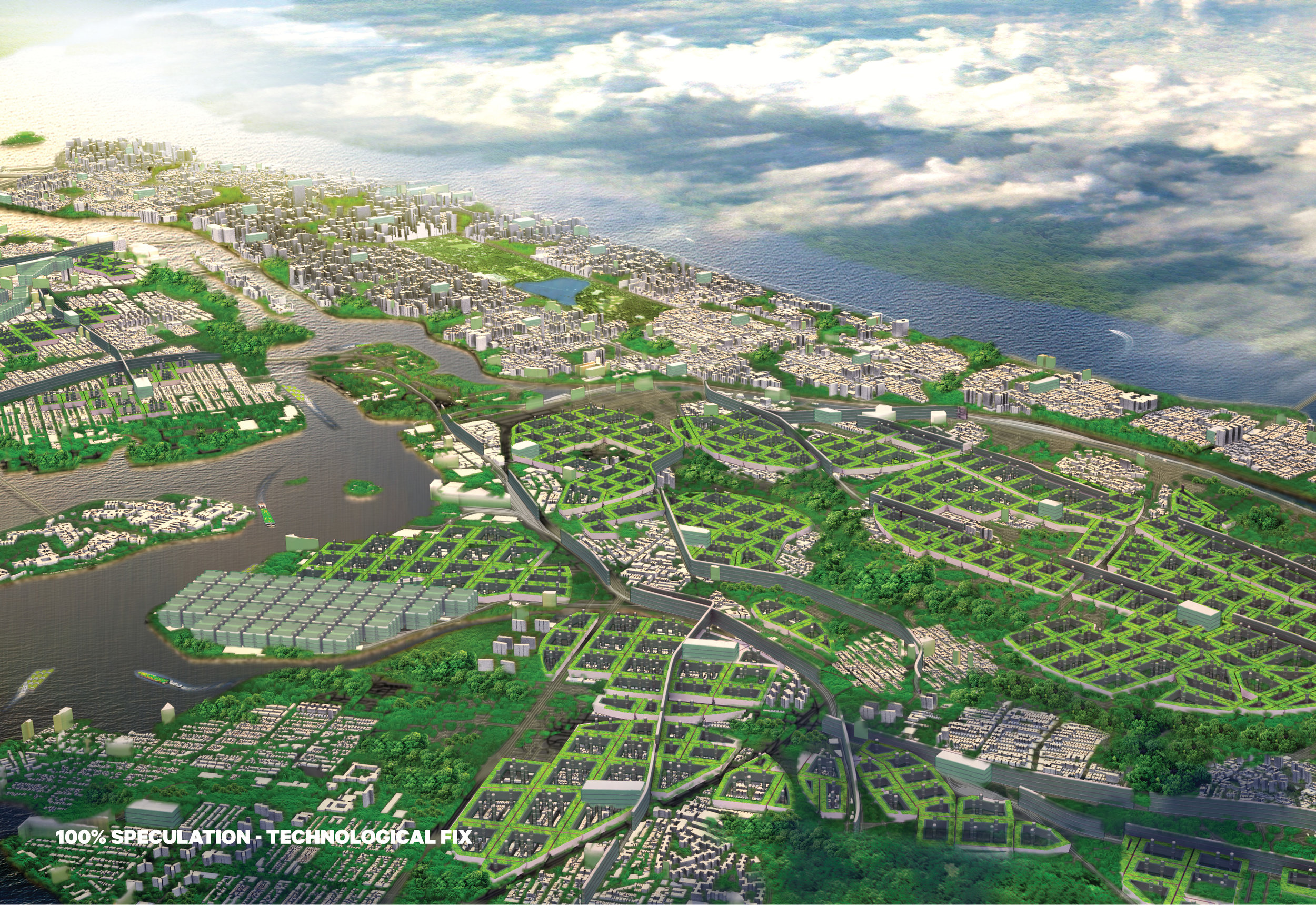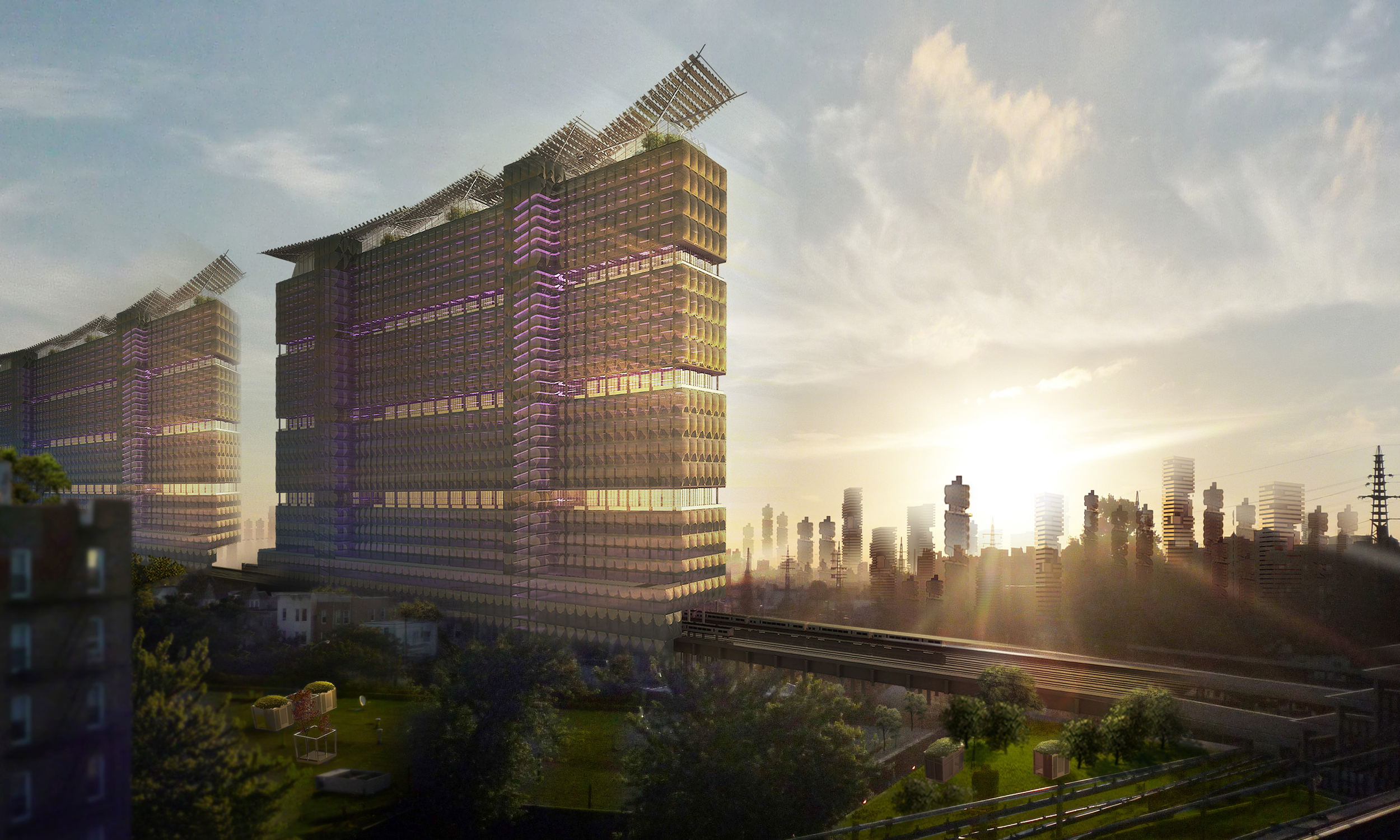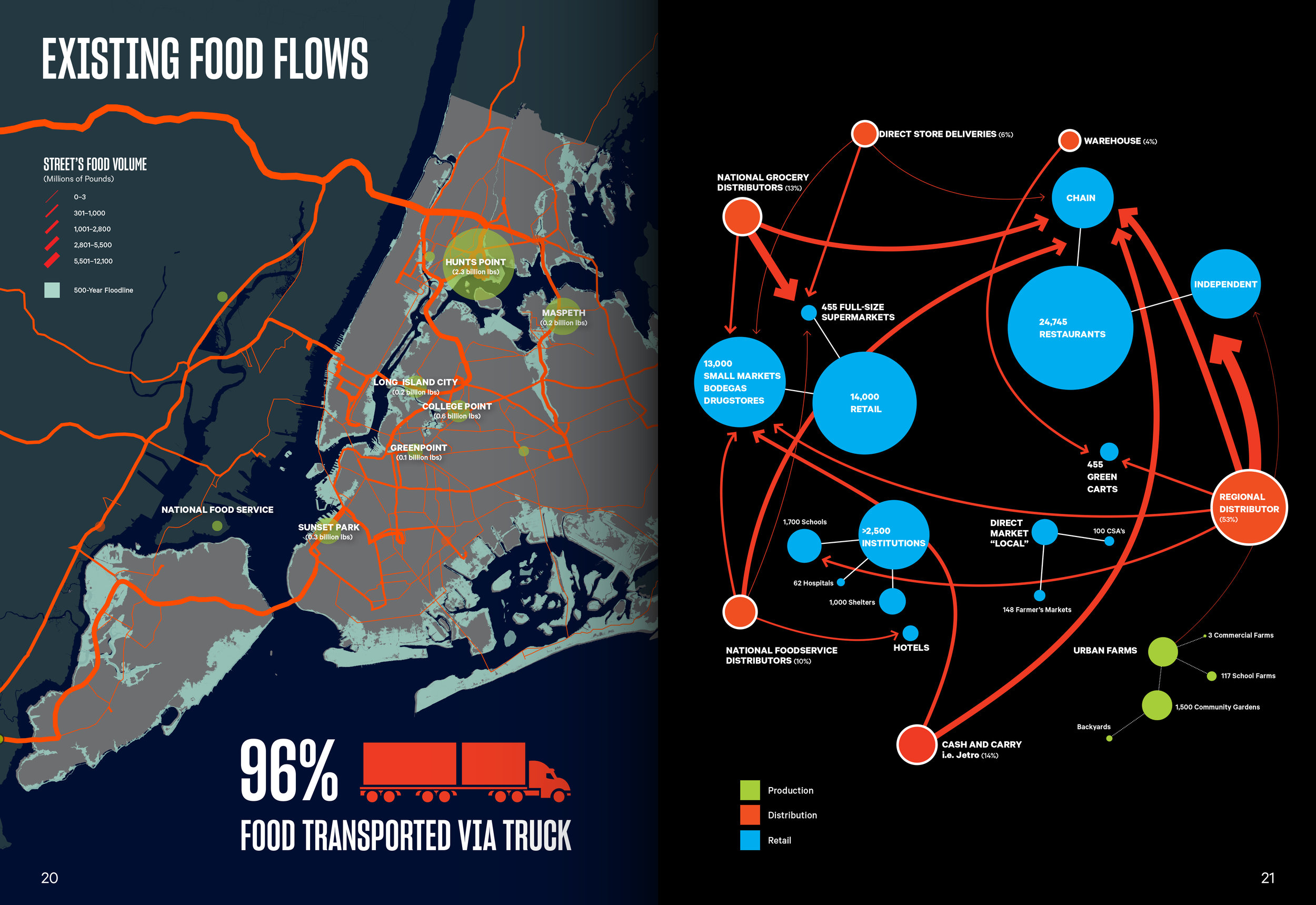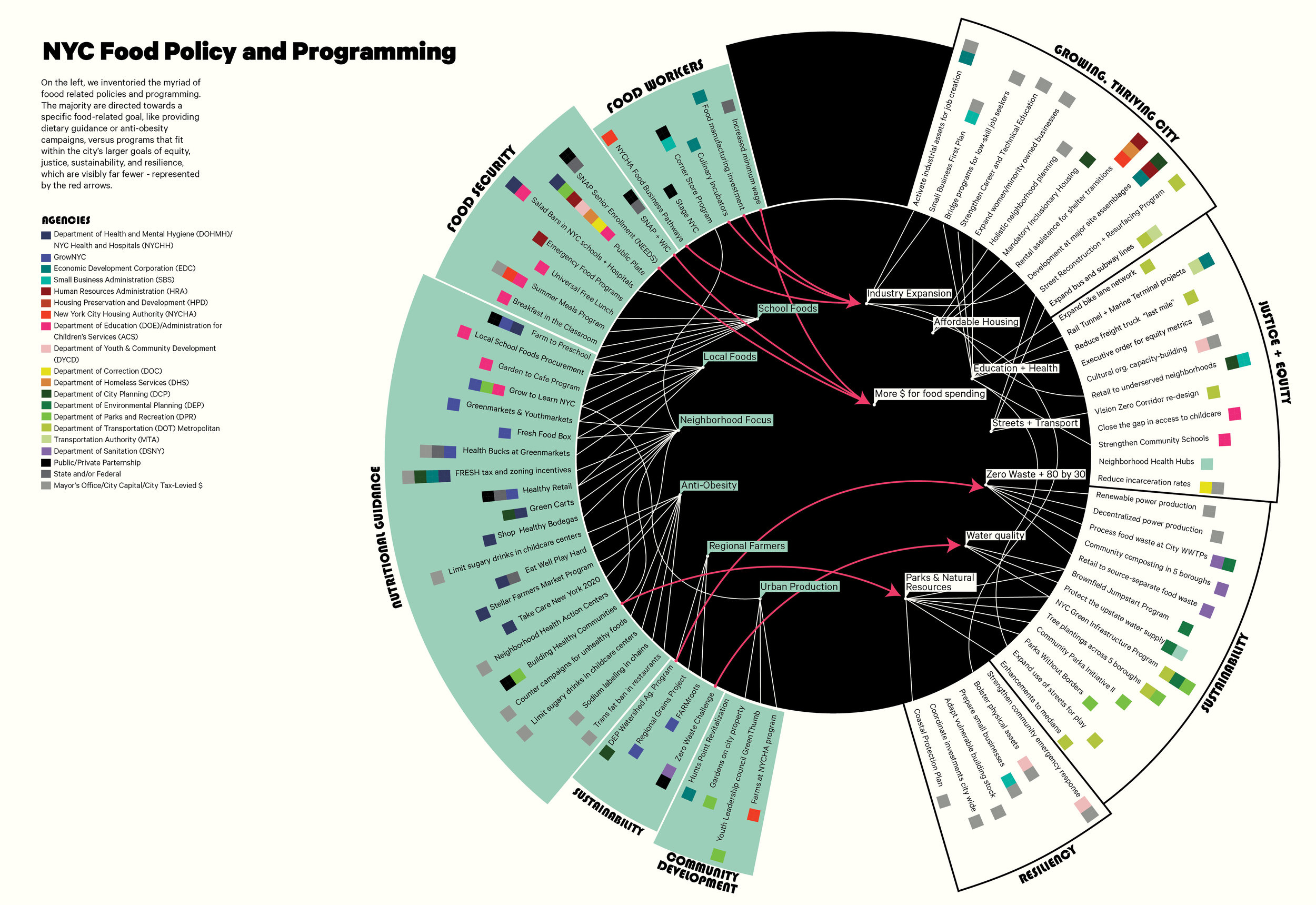Home Grown
Home grown
New York City (Steady) State is Terreform’s decade-long research and publication project that explores how New York City can advance autonomously by supplying its own food and energy, and managing its waste, water, climate, construction, and mobility. Through this iterative research project, we seek to inform urban policy making, link diverse constituencies, and support grassroots projects instigating new approaches to equity and access.
Our first volume, Homegrown, is a design proposal and collection of essays that interrogates the limit and logic of self-sufficiency in the realm of urban food systems. We demonstrate that it is technically feasible to grow enough food within New York City’s political boundary to provide 2,500 nutritious calories to 8.5 million people. However, we’ve discovered the impracticality – even the absurdity – of such technological fix that would require enormous amounts of space and energy and produce a limited variety of foodstuffs. We also recognize that the major issue is of distribution rather than supply: there is already more than enough food in the United States to feed everyone nutritiously, yet even in NYC, 1.3 million people remain food insecure.
Recognizing that the idea of autonomy must be framed not solely by the production of a certain amount of food, but by closing both material and policy loops to enable forms of autonomy that better serve social, environmental, and economic practices and needs, we investigate a variety of more progressive means of transformation at the scale of the neighborhood. Tracking the social, economic, built and ecological flows and infrastructures of the city's past and contemporary food system, we explore a range of more equitable and cooperative systems of production, distribution, preparation, and consumption from new forms of collective eating spaces; neighborhood food hubs; composting infrastructure; waste collectives; zoning new and retrofit block morphology for urban food production; bio-remediation strategies and a resilient municipal infrastructure supporting the generation of clean soil, a plant rich diet, and recycling to support social and economic development.
Essentially, this volume uses food systems to redesign the city and to forge more equitable relationships between producers and consumers, local farms and the city government, urban populations and the hinterland, and communities of varied socio-economic backgrounds. The hope for this project is to be a repository of information; a physical bridge between the various disciplines: designers to community advocates; artists and policy makers; the farmer, the student, and curious reader.
For inquiries, contact Andrea (andrea@terreform.info).
Table of Contents (Draft)






